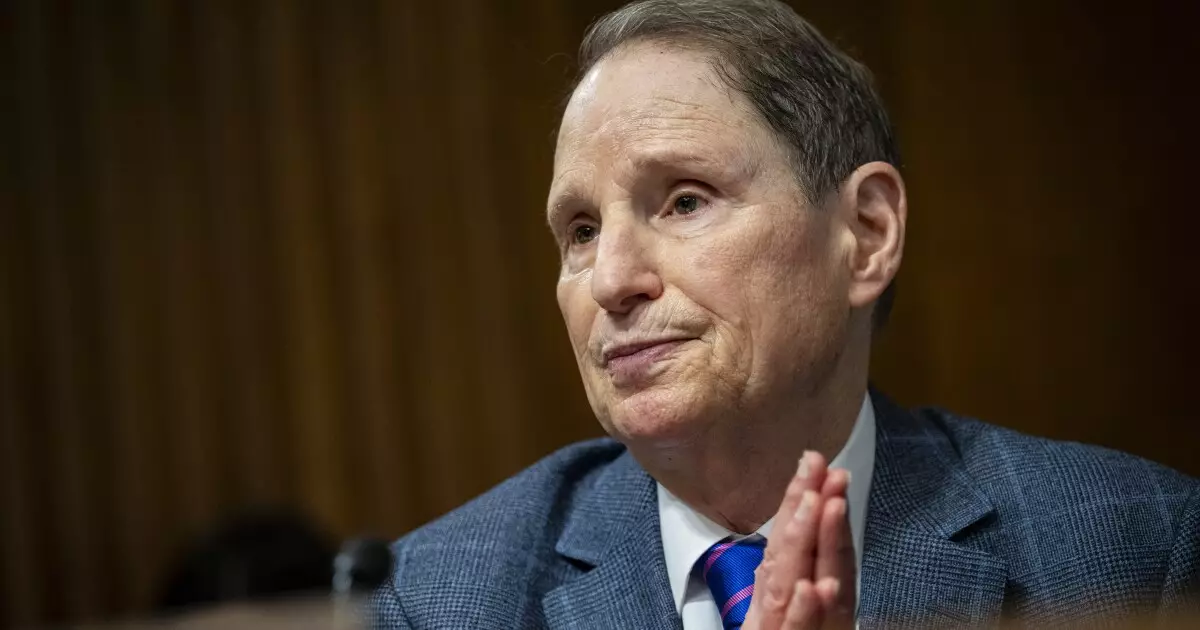As the calendar inches closer to critical tax debates set to unfold in 2024, the Senate Finance Committee recently ignited discussions that will shape the fiscal landscape for years to come. The meeting, which took place on Thursday, revealed stark contrasts between Democratic strategies aimed at curbing tax avoidance for the wealthiest Americans and Republican commitments to preserve the tax benefits established by the 2017 Tax Cuts and Jobs Act (TCJA).
The Stakes Are Higher Than Ever
Senator Ron Wyden from Oregon, the committee’s chair, aptly described next year’s tax reckoning as unprecedented. “This will be a make-or-break moment for the federal budget and America’s middle class,” Wyden remarked, emphasizing the significance of the challenges that lie ahead. As both parties prepare to tussle over tax reform, the media is buzzing with references to this upcoming debate as the “Super Bowl of tax policy.” The implications for ordinary Americans could be profound, particularly if lawmakers grapple with how to tax the upper echelons of income earners effectively.
Should revenue-generating strategies fail, the federal deficit is set to exacerbate the financial strain faced by the middle class. High earners’ avoidance techniques are culled amidst calls for ethical taxation reflective of actual income levels. The crux of the matter? Are the affluent going to receive tax breaks for income that they have yet to realize fully?
Concerns Over Tax Increases
On the opposing side, Senator Mike Crapo, the committee’s ranking member from Idaho, voiced a profound concern: the potential expiration of TCJA provisions could amount to “multi-trillion-dollar tax hikes” for average Americans. As the political arena prepares for the intense scrutiny leading up to election season, the specter of tax hikes looms large, igniting unease among constituents. The revenue repercussions of these proposals suggest a dire need for fiscal responsibility and strategic prioritization.
With an ever-challenging economic backdrop, many lawmakers are wary of unintended consequences that tax legislation might inflict on the wider American populace. The TCJA, which marked former President Donald Trump’s major legislative endeavor, left a significant imprint that now faces a crucial moment of reckoning. Trump’s campaign to solidify these tax measures as permanent could further complicate negotiations with a Democratic agenda committed to allowing said provisions to lapse.
One of the most contentious points of discussion has been the State and Local Tax (SALT) deduction cap, which was part of the TCJA. With calls from bipartisan lawmakers, especially from high-tax states such as California, New York, and New Jersey, there is a strong plea to eliminate the $10,000 cap on SALT deductions. Newly inaugurated Senator George Helmy from New Jersey argued passionately that this deduction serves essential public purposes. By referencing IRS data, he pointed out that many residents, particularly homeowners, felt a direct financial pinch as a result of the cap, which led to an average loss of $8,000 for taxpayers.
Critics might argue that this deduction disproportionately favors the wealthy, a notion Senator Helmy disputes, advocating instead that the cap places a more significant burden on lower- and middle-income families. This tension exemplifies the broader struggle of economic equity in tax reform discussions.
Beyond merely reforming deductions, Democrats are keen on generating incentives for affordable housing as a means of fortifying economic stability. Senator Maggie Hassan from New Hampshire posed vital questions regarding how the tax code can effectively promote workforce housing. The feedback from economist Indivar Dutta-Gupta highlighted the necessity for both supply-side and demand-side solutions to substantively tackle the pressing issue of housing unaffordability.
The interconnectedness of tax policy and housing is becoming increasingly evident as lawmakers consider proposals for enhancing the Low-Income Housing Tax Credit. Addressing this nexus of concern reflects a realization that tax policy can influence broader socio-economic factors, laying the groundwork for a more inclusive economic framework.
Targeting the Ultrahigh Net Worth Individuals
As discussions progress, the spotlight inevitably shifts to President Biden’s “billionaire tax,” championed by Kamala Harris. This proposal aims to levy a minimum tax of 25% on individuals worth at least $100 million, extending even to their unrealized gains on investments. This initiative has become increasingly polarizing, with proponents like Senator Elizabeth Warren suggesting it could generate considerable revenue, while opponents deride it as unconstitutional and as an affront to free enterprise.
In navigating through these contentious waters, it’s clear that the 2024 tax conversations will not merely revolve around numerical adjustments to tax codes but will also delve deeply into philosophical debates about wealth distribution, fairness, and the moral implications of taxation. As factions prepare to share their visions for fiscal reform, it becomes evident that the outcomes will resonate far beyond legislative chambers, with lasting impacts on the fabric of American economic life.

